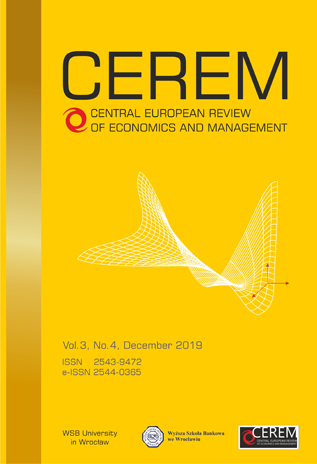Teaching and mindsets regarding sustainable development – a Mexican case study
DOI:
https://doi.org/10.29015/cerem.860Abstract
Aim: The world has become increasingly interconnected and complex. This represents a very serious problem for sustainable development; therefore, the development of instruments that reduces ignorance as well as fragilities are required, this with the intention of being prepared to deal with unexpected events that can threaten sustainability. In this context, universities emerges as a key player since they have the responsibility to lead society towards a sustainable future through the generation of professionals, managers and decision makers which play significant roles in national and global economies; however, it seems that the talent and human resources that are being generated lack the capacity to face these complex problems. This research aims to identify if teaching interventions, applied to engineering students, produces changes on students perception about business sustainability and sustainable development and, as consequence, identify if the creation of necessary cognitive capabilities for the solution of complex problems that can lead us to collapse scenarios can be produced on students.
Design / Research methods: Questionnaires were applied in a Mexican university. The experiment consists of three phases: (1) a pre-test (n=337), (2) intervention and (3) a post-test (n=329) to see the differences after the interventions. Analysis has been carried out based in hypothesis testing through z-test in order to identify significative changes among the two samples.
Conclusions / findings: Changes in the students' perception were observed. This means that the conditions for teaching sustainable development and sustainable business in this case of study can potentially contribute to creating in students the cognitive capabilities necessary to contribute to business sustainability. The results must be threated carefully; nevertheless, they provide the basis for further research.
Originality / value of the article: This paper makes substantial and original contributions to knowledge in the field through empirical approach; provide a unique and explorative perspective of the situation of current conditions for teaching sustainable development and sustainable business and presents potential contributions in to the creation of students with the awareness and capacities to solve the complex problems of sustainable development
Downloads
Published
Issue
Section
License
The aim of CEREM is to make scientific work available in accordance with the principle of open access. The rules mentioned below are important, as they enable CEREM and its publisher, the WSB Merito University in Wroclaw, to distribute the scientific work to a wide public while complying with specific legal requirements, at the same time protecting the rights of the authors.
The author transfers to the WSB Merito University in Wroclaw, free of charge and without territorial limitations, with all proprietary copyrights to the said piece of work in the understanding of the act of 4th February 1994 on copyrights and derivative rights (Journal of Laws of 1994, no. 24, item 83, as amended) on an exclusivity basis, i.e. the rights to:
1. Make the piece of work in question available via the Digital Library established by the WSB Merito University in Wroclaw.
2. Produce, record and reproduce in multiple copies the piece of work using any techniques whatsoever, including printing, reprography, magnetic recording and digital processing, and particularly its reproduction by recording on CDs and similar data carriers,
3. Use fragments of the piece of work for promotional purposes in publications, promotional materials, the Internet and Intranet type networks managed by the WSB Merito University in Wroclaw.
4. Store the piece of work into computer databases managed by the WSB Merito University in Wroclaw.
5. Copy and reproduce the piece of work using photo-mechanic technologies other than those commonly known at the time of the signature hereof (photocopies, Xerox copies etc.),
6. Process the piece of work, transferring it into an electronic form, and distribute it on the Internet without limitations.


